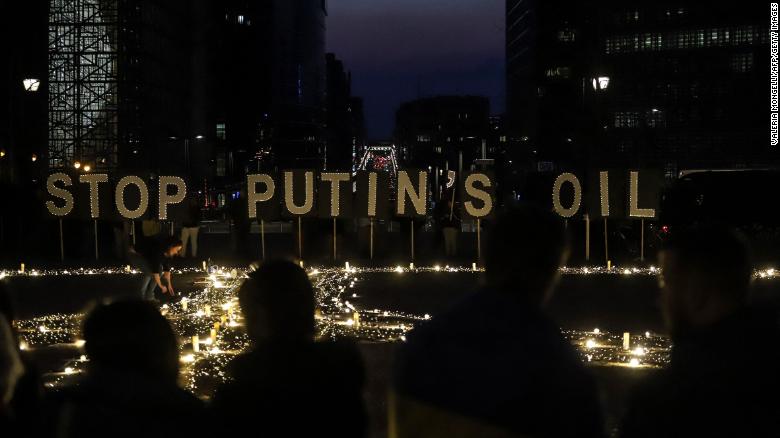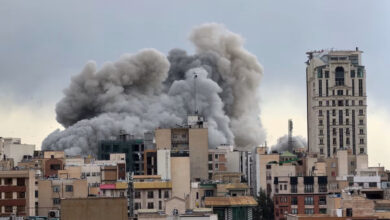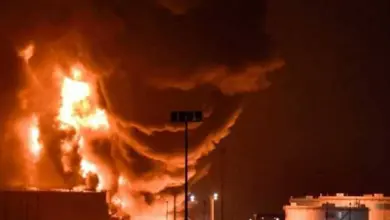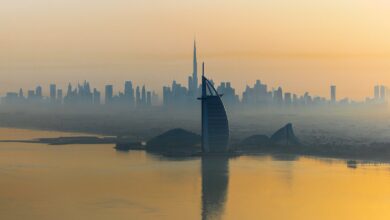
Abu Dhabi, UAE (CNN) – As Europe tries to stymie Moscow’s war effort in Ukraine by weaning itself off Russia’s oil, Middle Eastern nations appear to be the only producers with enough capacity to compensate.
The question is, do any of them have the technical ability, and crucially, the willingness, to step up? Don’t hold your breath, say oil analysts.
Western states have imposed a host of sanctions to punish Russia for its war in Ukraine, but the European Union is yet to halt imports of oil and gas, Moscow’s main source of revenue, to avoid hurting their own economies.
A potential EU ban on Russian oil could lead to a shortfall of 2.2 million barrels per day (bpd) of crude oil and 1.2 million bpd of petroleum products, according to the International Energy Agency.
While Middle East nations hold almost half the world’s proven oil reserves and much of its spare production capacity, lack of investment in infrastructure, conflict, political alliances, and sanctions are among the reasons the region may not be able to come to Europe’s rescue.
Here’s a guide to what oil producers can and can’t do to compensate:
Saudi Arabia and the United Arab Emirates
The two countries have the lion’s share of OPEC’s spare capacity that is readily available, said Amena Bakr, chief OPEC correspondent at Energy Intelligence, at roughly 2.5 million bpd.
But OPEC’s largest producer Saudi Arabia has repeatedly dismissed US requests to increase production beyond a long- standing quota agreed with Russia and other non-OPEC producers, and is unlikely to heed European calls to raise output.
Analysts say a potential diversion of current shipments from Gulf Arabs’ customers in Asia could come at a cost.
This would only be possible “within the flexibility of these long-term contracts, or by agreement with the Asian buyers,” said Robin Mills, founder and CEO of Qamar Energy in Dubai.
Gulf oil shipments could be diverted from Asia to Europe, but that would endanger the burgeoning strategic partnership between the region and its main buyer China, analysts say.
Iraq
In theory, Iraq can pump an extra 660,000 bpd, said Yousef Alshammari, CEO and head of oil research at CMarkits in London. It’s currently producing around 4.34 million bpd, and has a maximum production capacity of 5 million, he said, but sectarian divisions and a political stalemate in Baghdad mean it can’t be relied on to step in.
Iraq also lacks the infrastructure to raise output and investment in oil projects can take years before fruits are reaped, analysts say.
“You have to remember that with oil, it’s just not on tap,” said Bakr. “It needs investment, and this investment takes time to take effect.”
Libya
Libya’s oil fields suffer regular disruptions from continued political tensions. In late April, its National Oil Corporation (NOC) said the nation was losing more than 550,000 bpd in oil production from the blocking of its major oil fields and export terminals by politically disgruntled groups. One refinery suffered damage after armed clashes.
The NOC temporarily lifted force majeure on one oil terminal in early May, but disruptions remain a major cause for concern.
It is “nearly impossible to rely on Libya” for spare capacity, said Alshammari, since some of its production has been offline for years amid instability and repeated force majeures on key oil fields.
Iran
After the UAE and Saudi Arabia’s combined capacity, Iran is likely the most equipped to add oil to the market, but it remains under US sanctions as talks to revive the 2015 nuclear agreement with world powers stall.
The nation can contribute with up to 1.2 million bpd if US sanctions are lifted, analysts say. Data firm Kpler estimates that Iran had 100 million barrels in floating storage as of mid-February, meaning it could add 1 million bpd, or 1% of global supply, for about three months.
But the US is unlikely to “sign a bad deal with Iran just to put more oil into the market,” said Bakr.
Countries outside the region
Non-Middle East states with potential spare capacity, including Nigeria and Venezuela, also come with issues.
When it is said that a country has spare capacity, it means that it is “capable of bringing a given production within a period of 30 days for at least 90 days,” said Alshammari. For that reason, a Russian oil ban “can be detrimental to the global economy.”
That leaves Europe with a potential American option. But even if the US pumps more, it will neither suffice nor suit European needs because US crude is very light.
“Very light US crude is not an ideal fit for the European market nor for producing more diesel which is what is really needed,” said Mills.




